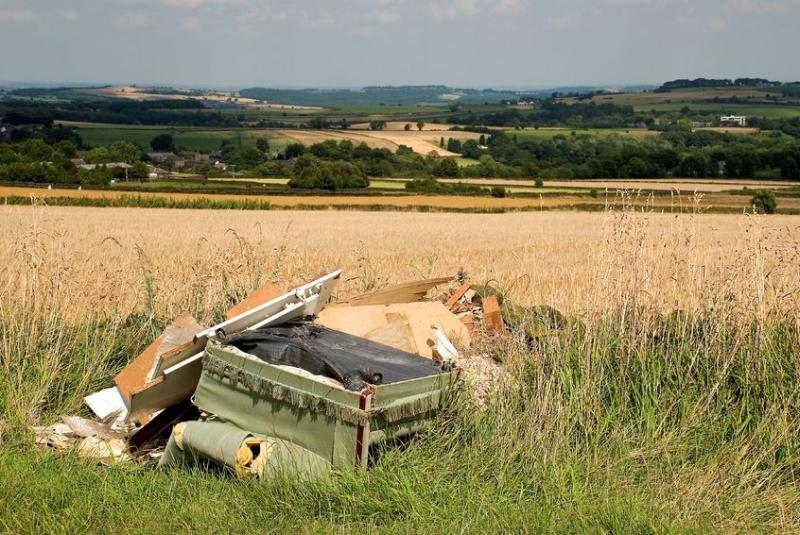
Farmers are calling for a concerted campaign to educate householders not to use illegal waste carriers to dump their rubbish.
Farmers and landowners are getting increasingly fed up of dealing with the aftermath of fly-tipping in the countryside.
Rural organisations, such as the NFU and CLA, have frequently called for tougher penalties and more prosecutions to act as a stronger deterrent.
The plea follows the release of figures showing that taxpayers had to cough up £58m to clear over one million incidents of fly-tipping in England during 2016-17.
National Farmers' Union President Minette Batters has previously said fly-tipping has become the "scourge of the countryside."
She said: "The rubbish can be costly and time consuming for farmers and landowners to remove, it’s dangerous to human health, harmful to wildlife and livestock and in some cases, fly-tipped waste pollutes watercourses and contaminates land.”
The CLA has responded to a government consultation on ways to tackle crime and duty of care in the waste sector.
The organisation says its members reported an 200% increase in fly-tipping on private land in just three years.
Fixed penalty notice
It is now supporting the government proposal to introduce fixed penalty notices for householders who do not dispose of their waste through proper legal channels.
CLA Legal Adviser Andrew Gillet said: “Fly-tipping is not a victimless crime. Almost two thirds of private rural landowners suffer from repeated fly-tipping incidents and are fed up with clearing away other people’s rubbish and paying for the privilege.
“Introducing a fixed penalty notice for householders who pass their waste on to unauthorised waste carriers would be a useful deterrent.
“However, to really tackle the crime, raising awareness of the risks of being caught and bringing forward more prosecutions are the right methods that will bring about a real change in behaviour.
Mr Gillett added: “Without better understanding from the public and the right legal deterrents in place, fly-tipping will continue to increase exponentially and further blight the countryside.”
The CLA also proposes that victims of fly-tipping on private land should be allowed to dispose of the illegal waste free of charge at local tips.
He continued: “It is a complete injustice that private landowners who experience fly-tipping are then subject to becoming a criminal themselves if they do not clear up and pay for the mess to be disposed of.
“If they must clear it up themselves they should not be charged for disposing of it legally.”
